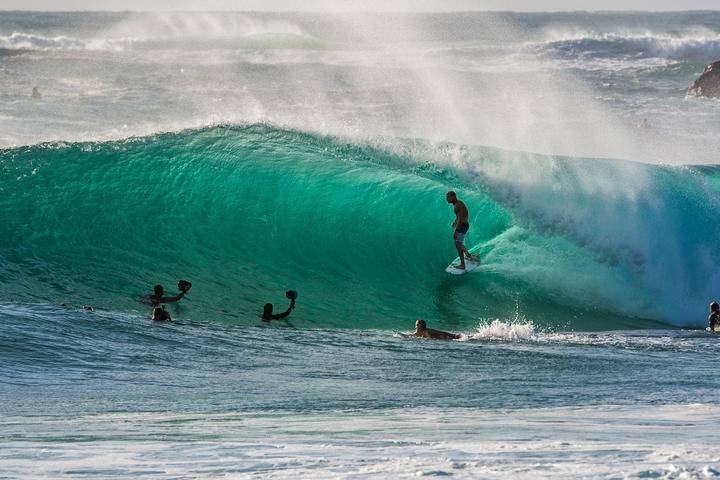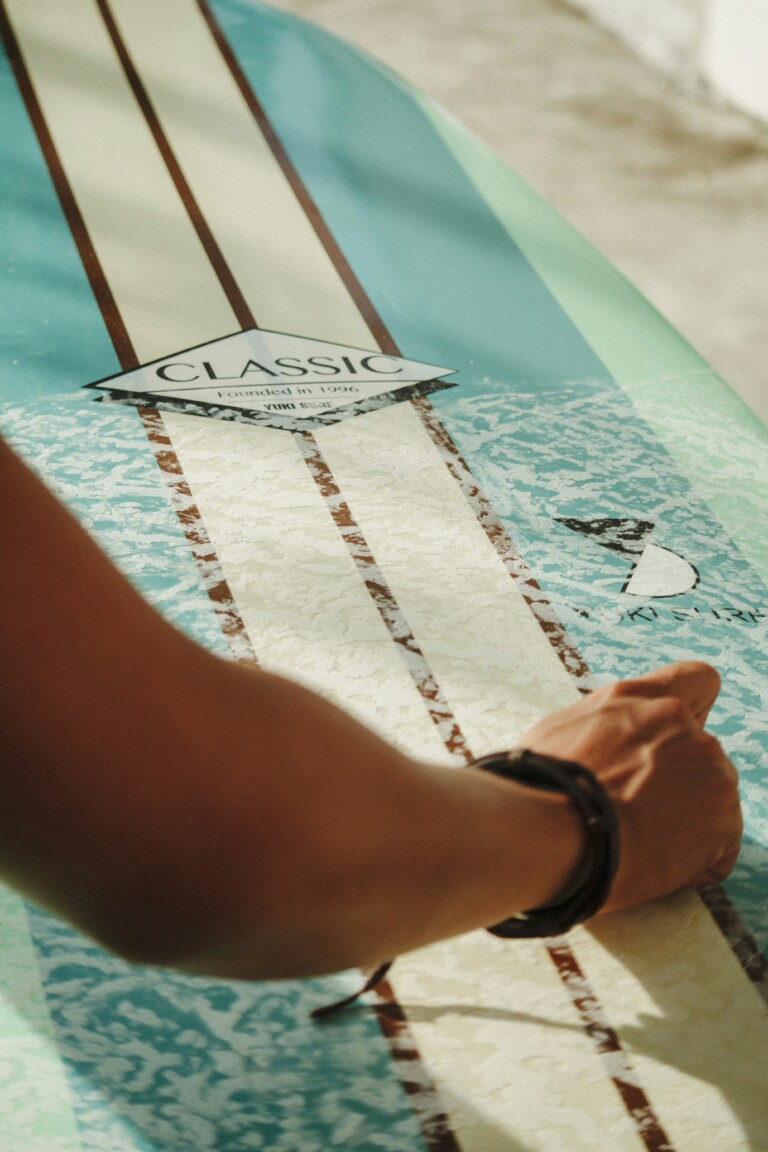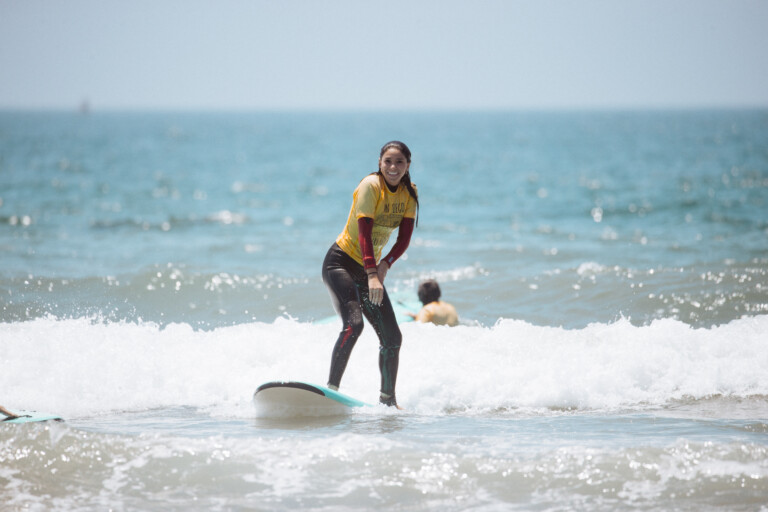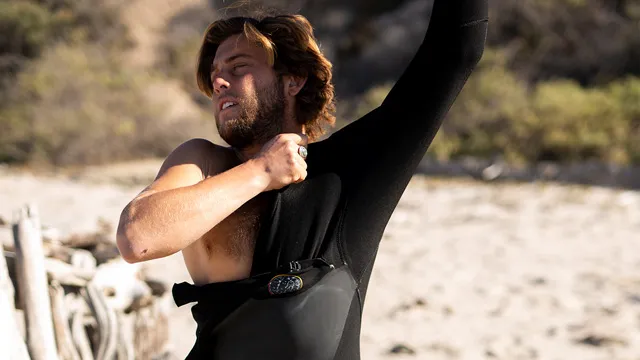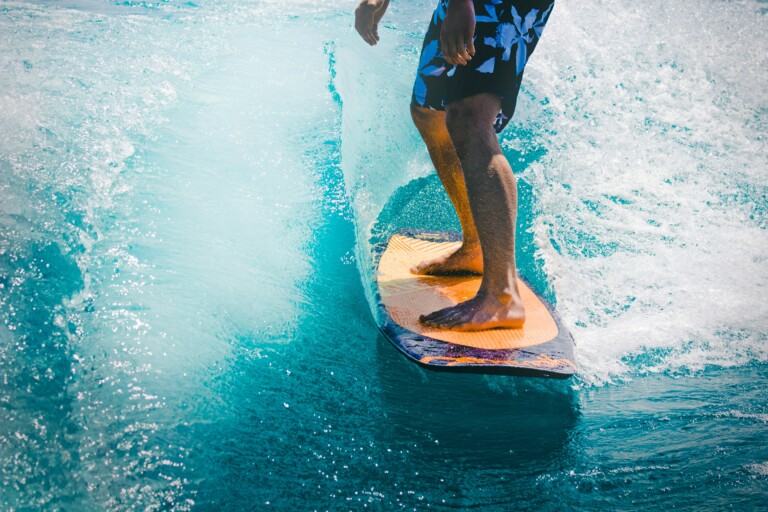Surfing is a sport, and as with any sport, an athlete is bound to make mistakes and have weaknesses. Some may say that to become a better surfer you just need more time in the water, but this is only partially true. You also need to also make the most of that time, not just keep repeating the same mistakes. Training and technique are part of the equation to improve your surfing skills.
Just because you didn’t wipe out doesn’t mean you didn’t make a mistake while surfing. That is a concept that may sound odd to a beginner, but when it comes to advanced surfing techniques, it is most definitely true.
YOU CAN MAKE MISTAKES BEFORE YOU EVEN PADDLE OUT.
For example, not stretching adequately before a surf session is a mistake and can take a toll on your performance. Paddling out on a board that doesn’t work well at a particular break is a mistake. Picking the wrong time and place to paddle out can be an error that robs you of valuable energy.
As far as mistakes made in the water go, there are plenty of opportunities to make them. Surfing is a complex pursuit with a lot of moving parts, not to mention that you’re doing it in a relatively unpredictable body of water. No two waves are the same; it’s not like a basketball court where the dimensions are the same every time you want to shoot hoops.
That’s why it’s important to analyze your mistakes. It could be a lack of heel pressure on an arcing top turn. It could be a miss-timed floater that sends you careening into the reef. Mistakes can be costly in the world of surfing, and injuries are common.
VIDEO
It’s not just about avoiding injuries, though. Improving your surfing often involves breaking bad habits, typically things we don’t even know that we’re doing. You might have improper positioning on your board, or maybe you’ve got a flaw in your pop-up. Do you mistime your bottom turns? Do you struggle with wave recognition and positioning on the take-off?
When it comes to analyzing your surf rides, mental analysis is not good enough alone. Video analysis is essential to facing the current state of your skills. Keep in mind, there is really great news when it comes to the idea of video analysis:
1. THE EXPERTS AGREE
Visit many websites for surfing coaches or schools, and they will offer video analysis services as a part of their coaching. While live, in-person classes and training are essential, especially for beginners, video is often the most effective method for advanced surfers to continue their upward trajectory in the surfing world. A quick visit to Youtube will provide plenty of examples of surf analysis videos. And of course, watching the masters at work can help give you insights as well.
2. THE DIY FACTOR
Can’t afford a surfing coach right now? No problem! Not too long ago, getting good video analysis of your ride would be difficult. But today’s inexpensive, readily available technology can provide many ways to capture a moment to analyze later. With only a friend, a mobile phone camera and a Go-Pro, you could have multiple perspectives to analyze out of the water. And if you have access to higher tech equipment, so much the better for the quality of the details.
3. THE PSYCH FACTOR
While analysis of your technique will hopefully be helpful in your training, it’s important to remember that analyzing your mistakes is to make you the best surfer you can be, not to compare yourself to anyone else. Surfing is known for its positive culture, so don’t kill the positive vibes by being overly critical; maintain an attitude of hope for your future as a surfer.
Having a friend shoot some video of you surfing is a great way to analyze your performance, tendencies, and habits. San Diego Surf School offers this very thing for surfers looking to take their surfing to the next level.
You might feel you’re smacking the lip like Andy Irons while you’re out there, which is great, but once you see it on film, you may realize that you’re not getting remotely vertical. It can be jarring, but in the end, it will make you a better surfer.
Analyzing the mistakes you’re making will set you on the course to correcting them and becoming the surfer you’re envisioning in your mind, the one you want to be. There is great power in facing your own weaknesses and taking them on with the right attitude. Hit the water and keep in mind what Matt Warshaw once said: “Surfing, alone among sports, generates laughter at its very suggestion, and this is because it turns not a skill into an art, but an inexplicable and useless urge into a vital way of life.”











